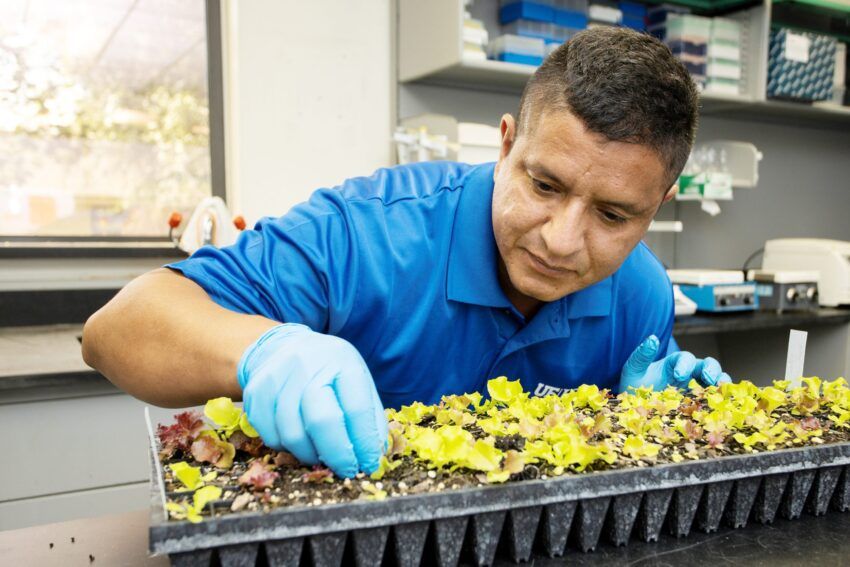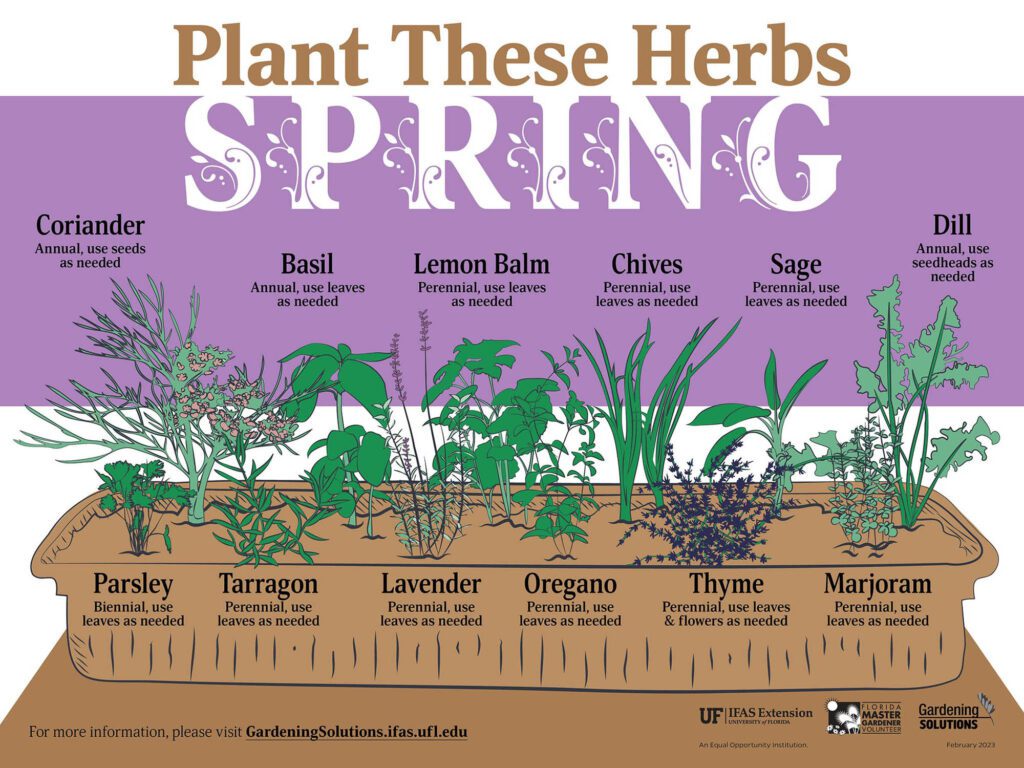Growing herbs for the first time? UF/IFAS expert offers beginners tips to getting started

If you are inspired to grow your food for the first time this spring, you might consider starting with an herb garden, said Germán Sandoya Miranda, an assistant professor of plant breeding and genetics for the University of Florida Institute of Food and Agricultural Sciences (UF/IFAS).
While most of his work focuses on improving new lettuce varieties that can beat the heat of Florida’s subtropical climate and withstand pests and diseases, Sandoya Miranda is also a statewide extension specialist stationed at UF/IFAS Everglades Research and Education Center who offers beginning herb gardeners encouraging advice to get started.
“As you embark on this adventure, be patient at the beginning as you will need to do some research to accommodate your garden’s needs and your own expectations,” he said. “UF/IFAS Extension provides the best tools for beginners in Florida. No matter where you are, an extension agent in your county is always happy to help you.”
Florida offers the perfect climate for growing a variety of herbs year-round. Depending on the location and time of year, some herbs may flourish at certain times better than others. Early spring, however, is the ideal and most consistent time for planting herbs throughout the state. During the spring, soil temperatures are ideal, and the milder weather conditions mean seedlings won’t get battered by extreme heat or cold.
Some of the more common herbs for cooking — including basil, coriander, chives, dill and parsley — are among the ideal varieties to grow in the spring.

Sandoya Miranda offers these tips for novice herb gardeners ready to start their journey.
Consider when and where you are planting your herbs. Understand the location, amount of sunlight, soil and moisture conditions where you are planting your herbs. You can modify the planting locations by growing indoors with artificial lighting, heating or cooling aids.
Start out simple with some basic varieties.
Not sure what to grow? Look at research-based resources such as the UF/IFAS Gardening Solutions website, consult a variety catalog or gardening calendar publications such as those found on Ask IFAS for the herbs you are interested in growing.
Make sure you choose varieties adapted to the subtropical weather conditions in Florida. Whether you are planting in the southern, central or northern part of the state, weather conditions should be taken into consideration.
Familiarize yourself with the species of herb you are trying to grow. Some species may be more susceptible to diseases, and pests may be more abundantly present in the location you are attempting to grow your herbs. Specific plant species may require specific growing conditions.
Always use certified seeds, which are free of pathogens, to avoid disease development. For more information, refer to the UF/IFAS Gardening Solutions website or contact your local UF/IFAS Extension office agents for help.
If pests and diseases show up in your garden, consult an Extension agent specialized in insect pests or diseases. Refer to the Extension program directory to locate the agent in your county. Make sure not to apply any chemical pesticide at least 10 days prior to harvest.
Plant a variety of herbs. Some species vary in flowering time, colors and shapes. Make your herb garden a fun-to-watch spot. Enjoy the colors and aromas of your homegrown herbs, said Sandoya Miranda.
Looking for more resources? The Gardening Calendar publications on the UF/IFAS Solutions for Your Life website gives Florida gardeners a monthly guide for what to plant and do in their gardens and includes links to useful gardening websites, all based on University of Florida research and expertise. Three different editions of the calendar provide specific tips for each of Florida’s climate zones—North, Central, and South.




